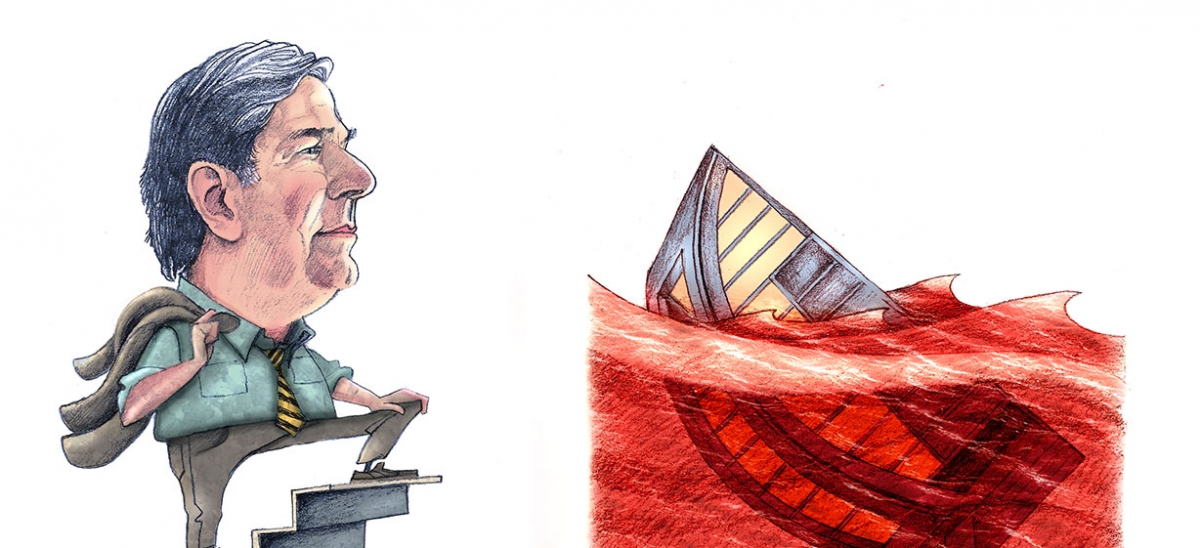Stocks & Pedestal, Spring 2014

For most of us, the phrase “one-party rule in Pittsburgh” conjures the Democratic Party. But for 70 years after the Civil War, the Republican Party had a lock on Pennsylvania and, largely, Pittsburgh. Only the Great Depression and the sweeping victories of the New Deal could break that lock. And since the mid-1930s, Pittsburgh has belonged to the Democratic Party.
Now, however, regardless of party, a new, progressive era is at hand with the November election of Bill Peduto as mayor. We have high hopes for Peduto, who started his term in January with “Talent City,” a bold initiative in partnership with The Pittsburgh Foundation to fill top administrative posts not with cronies, but with the best candidates vetted by a national search committee.
Peduto has requested the resignation of all prior mayoral appointments to 10 key city boards, authorities and commissions, in an effort to build the most talented and diverse city government in Pittsburgh history. “We’re here to change the culture on Grant Street,” Peduto said. “For too long appointments to our most vital boards, authorities and commissions have been handed out as political favors to friends and donors. That is stopping now.”
The mayor’s first day started with a bang. Staffers were informed that meetings would start on time, and late arrivals wouldn’t be allowed in. Men would wear jackets and ties. Pittsburgh’s new mayor dismissed many politically connected employees, which is not easy for anyone involved. But Peduto’s move toward transparent, effective and efficient government is long overdue for Pittsburgh, which has been under federal investigation.
We are putting Peduto on our pedestal for taking dramatic steps toward forging a new city government. These changes already are making headlines across the country; we hope that they will bring excellence in governing to the city and that the Peduto administration will mean new strength and vision for the core of the Pittsburgh region.
In the stocks: The August Wilson Center
Bankrupt cultural center defies solutions—so far
When it opened in 2009 as a tribute to the life and legacy of Pittsburgh’s great playwright August Wilson, there was understandable pride that Pittsburgh was doing justice to both Wilson and the city’s African American cultural heritage. Even at the opening gala, however, there was muted discussion that the $40 million center had significant financial problems.
Initial fundraising difficulties were aggravated by a host of problems. Revenue sources were insufficient to sustain ambitious programmatic goals. The center’s first leader left shortly before the opening, and its second leader left after just over two years in the post. Weak marketing failed to bring enough patrons to the structure, which, while beautiful, lacks parking and other amenities necessary to attract sufficient events. Despite leniency from its creditors, the center ultimately failed financially last fall.
In January, a U.S. bankruptcy judge appointed to try and save the center concluded it to be an impossible task under current conditions. Without a viable business plan, not only to recoup the $10 million in debts but also attract revenues to support future operations, philanthropic donors and the Allegheny County Regional Asset District understandably have been unwilling to put in more money.
We are putting the situation in the Stocks not to place blame for the regrettable situation, but in the hope that a new plan can be devised. Conceived with good intentions, the center must have more than that if it is to succeed. It needs new leadership, consistent revenue and a new plan. We hope that such a plan will maintain the center’s name and at least part of its mission, but with an infusion of economic reality, so that viable programming creates a sustainable tribute to August Wilson and a community center that the public will support.


